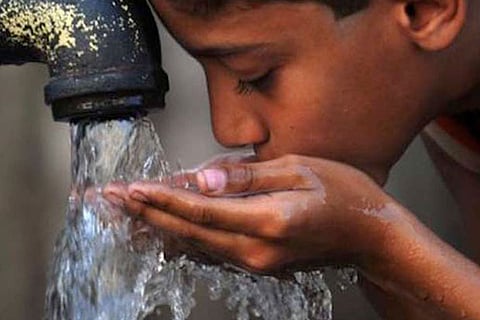

Chennai
With the failure of north-east monsoon coupled with depleting groundwater, water scarcity is set to take a toll on residents in the city. However, amid the crisis, there is another worry among health experts. Dr P Kuganantham, former state officer, says, “Whenever there is water shortage, the possibility of water-borne diseases is high. We need to prepare strategies to prevent any outbreak like diarrhoea that arises due to consumption of contaminated water.”
However, water-borne diseases and bacteria are just one part of the issue, there are other diseases that stem from consumption of water with high metal content. Professor Dr S Elango, president, Indian Public Health Association, Tamil Nadu, said that Chennai, Kancheepuram and Tiruvallur districts are vulnerable to such diseases.
He added, “We tend to look at any source of water during these times. These could be unused field wells that might be contaminated. Similarly, within cities too, we have shallow borewells in areas such as Adyar where the water contains sodium and potassium. High levels of sodium and potassium in the body can lead to palpitations. Deep bore wells have iron and arsenic content that can affect one’s health by causing diseases like sideorisis.”
He pointed out some of the field wells that were used for agricultural purposes in and around Kancheepuram were often contaminated with fertilisers and pesticides. He said, “The private borewells also need to be certified by the public health department or the TN Water Supply and Drainage Board. During water shortage, we must look at what is the source of water for restaurants and hotels.” But the Public Health Department maintained that with pipe water supply, the chances of diseases were minimal.
“We will keep a watch on the private lorries that carry water supply during the shortage,” said Dr K Kolandaisamy, Director, Public Health and Preventive Medicine.
Visit news.dtnext.in to explore our interactive epaper!
Download the DT Next app for more exciting features!
Click here for iOS
Click here for Android